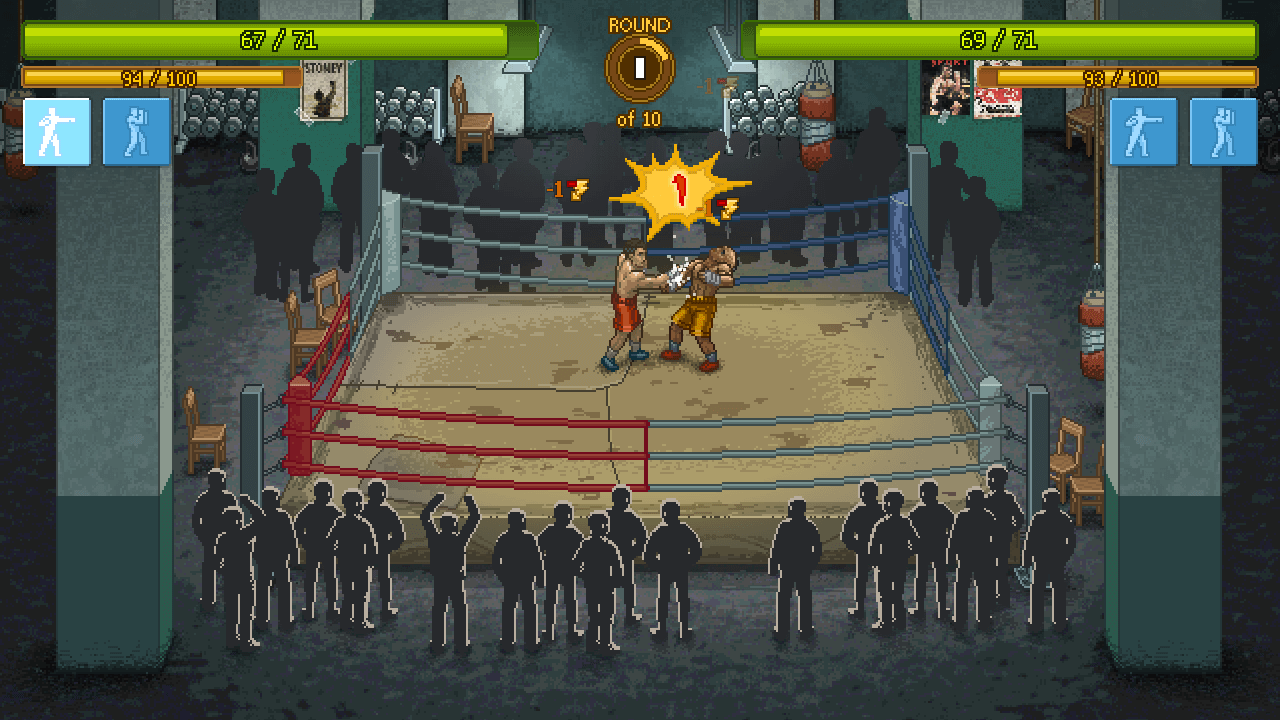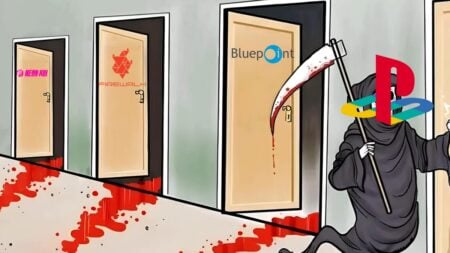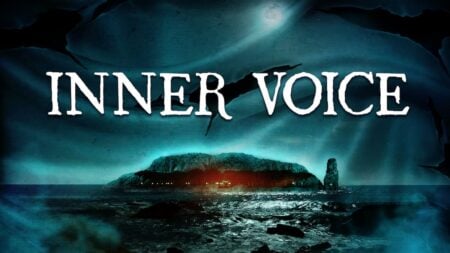Title: Punch Club
Available On: PC, Mac OS, Android, iOS, Linux
Tested On: PC
Developer: Lazy Bear Games
Publisher: tinyBuild
Genre: Management, RPG, Strategy
Official Site: https://tinybuild.com/punchclub
Release Date: January 8, 2016
Where To Buy: Steam
Fighting creatures straight out of Teenage Mutant Ninja Turtles. Working in a rock quarry. Eating raw steaks. Avenging your father’s murder. Training to become the best fighter in the world. All in a day’s work for a fighter in Punch Club, the strategy/sports management game from developer Lazy Bear Games. Punch Club has a cool, retro aesthetic and some really cool ideas, but tends to get a bit too repetitive and gritty at times, especially when you hit certain later-game sections.
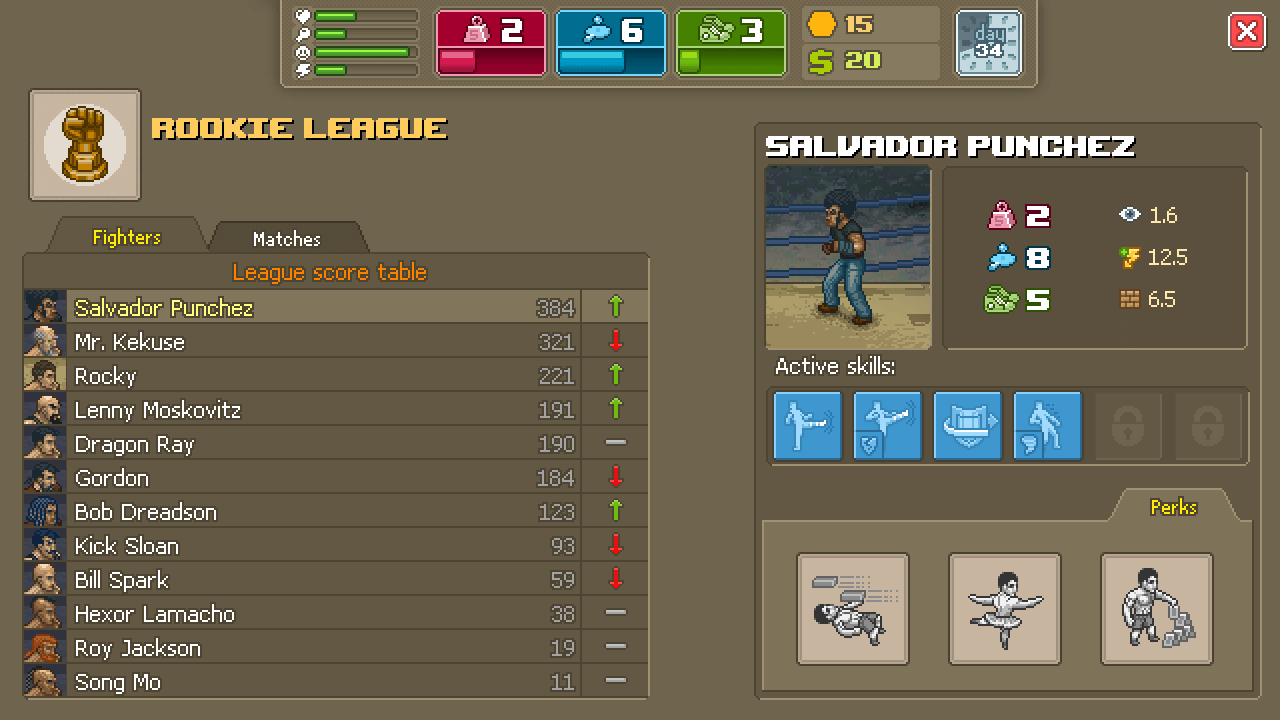
Punch Club immediately gets its hooks in with its retro art design. Catchy music and pixelated art will ring some nostalgia bells, and the hokey dialogue also brings back some fond memories of older games and media. Even though the retro art style and chiptune music are a bit overused in today’s indie developer landscape, it works when done well. Punch Club does it well. The main theme is very catchy and will definitely take people back to the days of flipping the power switch and waiting for their Super Nintendo to load up. To go along with the retro aesthetics, there are also tons of pop culture references, from the aforementioned Ninja Turtles to Fight Club, Jay and Silent Bob, Batman, and much more. Some of these references really hit the nail on the head: the funny references add to the story or genuinely make you laugh. Other times, the references are just there to be there; they are an homage that serves no purpose. Sometimes it is not an issue, other times it can get annoying to see Vincent and Jules sitting in the diner every single time you go in.
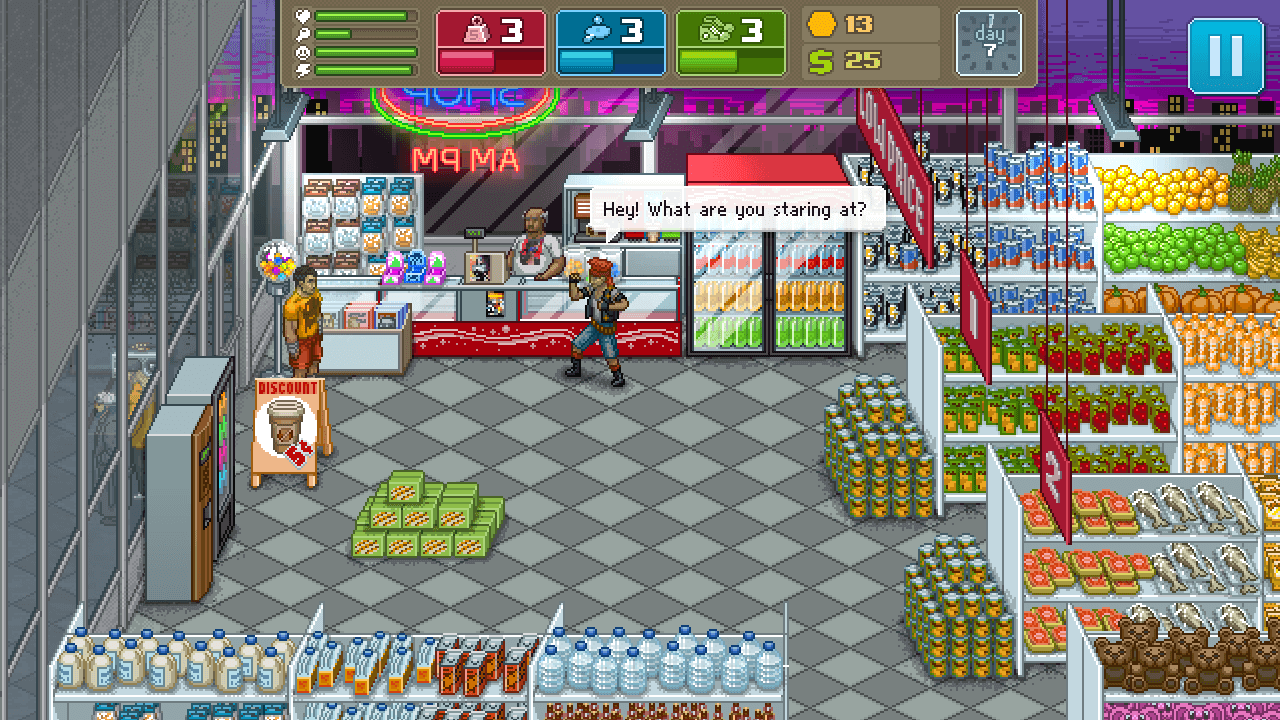
It may look like it, but Punch Club is not a fighting game. The player has very little control over their character during the actual fights; there are a few slots to choose what moves your character can perform, but otherwise the fights are entirely driven by the AI. Instead, Punch Club is a game of resource management. In the overworld, your main resource is time. Fights happen every couple of days, and how you spend time will dramatically affect how your character acts during the fight. It may be one day until the fight, so you need to train. However, your character is hungry. There is no food in the fridge. There is no money in the bank. Do you risk a fight with low energy so you can train up your skills? Or do you deliver some pizzas for fast cash, get a full night’s sleep, and go into the fight rested, but with a little less skill? The risk-reward of Punch Club is full of small decisions like these (every move on the overworld even comes with a dreaded “Bus ride that costs money” or “walking that costs time” question) that forces the player to decide where they are putting the most value.
These decisions also come up during the resource management of fights. The player chooses what skills are available each round, and they must manage the hit points they have left and keep stamina in the positive. This constantly forces swapping of passive abilities, powerful strikes, and tricky dodges. Do you go for a bull rush, so managing stamina does not even become a question before the knockout? Or do you spend the first few rounds blocking and dodging, saving energy so that you can easily dismantle your tired opponent in the later rounds? The experience you earn from fights can also be spent to learn new moves: do you spread out skills and become well rounded? Or do you focus on one specific area and hope you don’t run into a hard counter?
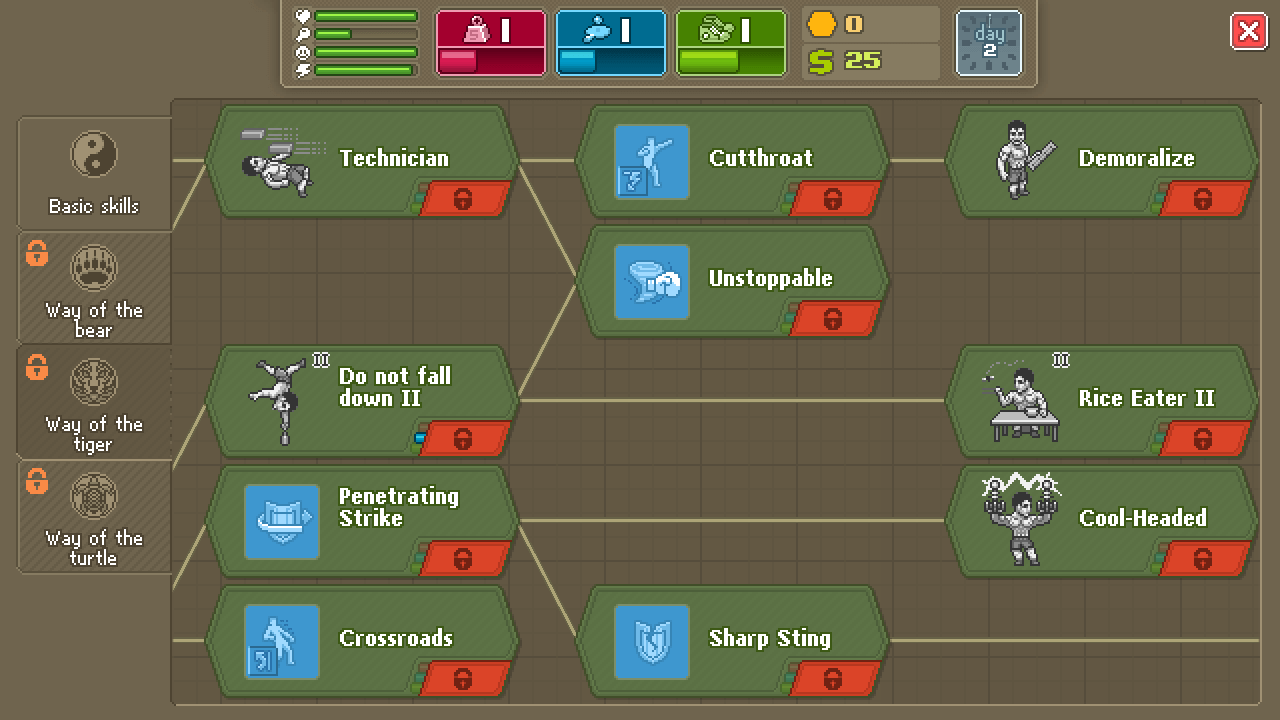
The surprising depth of these systems is what gives Punch Club such good substance to back up its style. The intentionally hokey story gives some direction on where to go, but it is not too difficult to just find a rhythm and stick with it. The issues that come up in Punch Club come from the serious grind during some of the difficulty spikes. Every time a day passes, your character loses some stats. This can make it especially difficult if you find yourself in a losing bout or two, as you have a chance of getting injured and you do not make as much money, which means you can spend even less time training to try to get over that hump. This can be especially frustrating because the player does not have any actual control during the fights; watching as your stamina plummets from missed punch after missed punch, only to have a much weaker opponent knock you out, can erase any semblance of progress in the game. It often goes beyond the “fun” RPG grind and into the “grind” RPG grind, and at times it can even feel like starting over after a few hours is a better option than trying to retool your character. These issues mar an otherwise pretty impressive game.
Overall, Punch Club has some great moments and ideas to go with its nostalgic style. Not everything works, but it is a humorous and surprisingly deep strategy game that is easy to lose track of time during. If you don’t mind a bit of a grind and some weird AI difficulty spikes, it is recommended.
- Gameplay: Manage an athlete as he trains, earns money and tries to avenge his father through a series of underground street fights.
- Graphics: Retro pixelated graphics with plenty of personalities and good animation.
- Sound: Fun chiptune music, recognizable but minimal sound effects.
- Presentation: Lots of in-jokes and references, intentionally cheesy story and dialogue.
[review]

